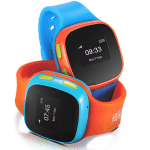 In a way, it all began with The Clapper in 1996. Clap on, the lights are on. Clap off, the lights are off. While the device was less than perfect (dog barks and laughter also triggered the switch), it sold millions and ushered in a future that eventually became known as everything from the Internet of Things, to home automation, to digital assistants.
In a way, it all began with The Clapper in 1996. Clap on, the lights are on. Clap off, the lights are off. While the device was less than perfect (dog barks and laughter also triggered the switch), it sold millions and ushered in a future that eventually became known as everything from the Internet of Things, to home automation, to digital assistants.
And this time around, it actually works, with or without dogs: install enough gadgets, and you can tell Siri to turn off your lights.
But, perhaps like The Clapper, the early adopters have made their purchases and the rest, well, the rest don’t really care.
Early evidence based on Amazon ($NASDAQ:AMZN) sales-rank data suggests that after a 2017 swell when the technology hit its first stride, consumer appetite for smart-home technology is normalizing, or even declining. Across just about all major brands in the space, products are slipping in ranking and, in several cases, failing to rank at all in Amazon’s top-100 categorical ranking data.
Philips Hue: nearly off the top-100
Much like future The Clapper promised, the Philips ($NYSE:PHG) Hue smart lighting system connected millions of lights to WiFi networks to allow consumers change lighting schemes, underlight cabinets, and, perhaps most importantly, shout a “lights out” command to digital assistants when it was time for bed.
But those rosy days are over, and now that Philips Hue is not just commonplace, but copied by the likes of IKEA, sales ranks for the devices have seen a steady decline. The 2018 holiday season saw a bit of a push, but as of July 2, the devices are at risk of falling out of Amazon’s top-100 for their respective category.
Nest: sales-rank temps cooling off
If Philips’ Hue lights ushered in a remote-control lighting scheme, Nest thermostats promised a future of convenience and artificial intelligence “learning” that re-imagined the home as an efficient, cost-effective place to be ahead of the crowd. And it worked: the Nest Thermostat not only sold well, but it accelerated imitations and a $3.2 billion Google ($NASDAQ:GOOG) acquisition.
But what was once a top-50 seller at Amazon has become, at best, a bottom-50 “nice-to-have”. As of early July, Nest products averaged out a sales rank of 81 out of 100.
Logitech Harmony Hub: Never really a thing
Perhaps the most ironic thing about home automation via smart-home gadgets is the fact that so many of these devices can’t talk to one another. If you have a trio of Google Nest products, for instance, you’ll have a tough time getting Siri to tell them what to do.
Enter products like Logitech’s ($NASDAQ:LOGI) Harmony Hub that create a way to get smart-home products talking to one another. Back in 2017, it was a 28.5-rank item. But by November 2018, it fell off Amazon’s ranks.
Samsung SmartThings: A brief moment
Like the Logitech Harmony Hub, the Samsung ($KRX:005930) SmartThings brings smart-home technology together in a hub that’s controllable from anywhere. During the 2018 Holidays, it did pretty well at Amazon, hitting the top-100 with a post-Christmas high of 57 out of 100.
But in early 2019, it slipped off Amazon’s best-seller ranks and hasn’t been seen since.
Ring smart home security: Amazon’s advantage
The Ring Video Doorbell and alarm systems appear to be bucking the trend here. As of this week, Ring products are still hitting the top-100 for smart-home products sold at Amazon. And last year around this time, Ring products even graced the top-10.
It’s possible that people still have an appetite for video doorbells and smart security systems. More likely, however, is the fact that Amazon now owns Ring and pushes the products pretty hard.
Why is this happening?
There are three likely reasons that consumer interest in smart-home tech is seeing a lull.
First, those who wanted it have bought it and they won’t be back in the market for a while. This is a natural cycle for any transformative technology. It’s possible that when the next big Nest Thermostat or other innovation hits the market that we’ll see another rush. But, for now, the marketplace appears to have hit a natural plateau.
Second, it’s probable that late-adopter interest has waned now that they’ve realized that turning lights on and off via smartphone isn’t as convenient or exciting as they had hoped. After all, why fix something that isn’t broken?
Third, given public concern over matters of data privacy, some consumers are likely creeped out by the notion of putting their home online, especially under the watchful eye of companies like Amazon, Google, and Apple ($NASDAQ:AAPL). When it was revealed that Google didn’t disclose the fact that its smart alarms came equipped with microphones, people were understandably outraged.
[“source=thinknum”]











